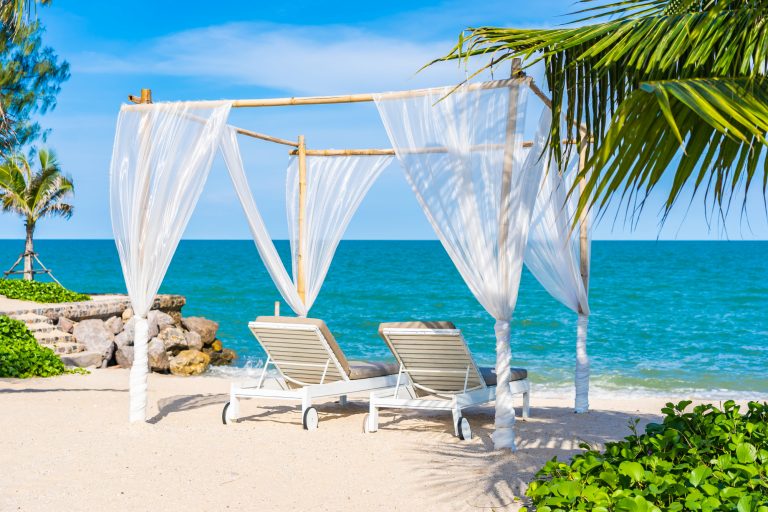Learn how to strategically set your Airbnb minimum night stay policy to optimize revenue, attract the right guests, and enhance guest satisfaction. Explore tips for weekend minimums and discover effective approaches for 1-2 night stays in non-seasonal markets. Elevate your hosting game with our in-depth guide.

Setting a minimum night stay policy on Airbnb is a crucial aspect of hosting that can significantly impact your property’s performance, guest satisfaction, and overall success on the platform. In this detailed guide, we will explore the concept of a minimum night stay on Airbnb, discuss the importance of having such a policy, and provide insights into determining the appropriate minimum night stay for your property. Additionally, we’ll delve into the considerations for weekend minimums and address the specific case of 1-2 night minimum stays for non-seasonal markets.
What is a Minimum Night Stay on Airbnb?
A minimum night stay on Airbnb refers to the minimum number of nights a guest must book in order to secure a reservation at your property. Hosts have the flexibility to set this requirement based on their preferences, property type, location, and market demand. The minimum night stay policy helps hosts manage their availability, attract guests who align with their hosting goals, and optimize their property’s overall performance on the platform.
Why is Your Airbnb Minimum Night Stay Policy Important?
1. Optimizing Booking Patterns:
- Implementing a minimum night stay policy allows hosts to influence booking patterns. For example, hosts looking to attract longer-term guests or minimize turnovers might set a higher minimum night stay, encouraging guests to book extended stays.
2. Revenue Management:
- Hosts can use the minimum night stay policy as a strategic tool for revenue management. Longer stays often result in a higher total booking value, making this policy essential for hosts seeking to maximize their earnings.
3. Property Maintenance and Turnover:
- Longer stays can reduce the frequency of guest turnover, making it more manageable for hosts to maintain and prepare their property between reservations. This is particularly relevant for hosts who handle their own cleaning and maintenance.
4. Guest Satisfaction:
- Aligning the minimum night stay with the type of experience your property offers can enhance guest satisfaction. Guests looking for a more immersive and relaxed experience may appreciate a minimum night stay that allows them to settle in and explore the area at their own pace.
5. Market Demand and Seasonality:
- Minimum night stay requirements can be adjusted based on market demand and seasonality. During peak seasons or high-demand periods, hosts may choose to implement longer minimum stays to capitalize on increased demand.
6. Tailoring to Property Type:
- Different property types may benefit from different minimum night stay policies. For example, a beachfront vacation home might attract guests seeking longer stays, while a city apartment may cater to short-term visitors.
How to Determine Your Airbnb Minimum Night Stay Policy?
1. Understand Your Hosting Goals:
- Clearly define your hosting goals. Are you looking to maximize revenue, minimize turnover, attract specific types of guests, or create a more relaxed atmosphere? Understanding your goals will guide your decision-making process.
2. Analyze Market Demand:
- Regularly analyze market demand in your area. Research the booking patterns of similar properties, evaluate seasonal trends, and consider local events or attractions that may influence guest stays.
3. Consider Property Type and Location:
- Tailor your minimum night stay policy to your property type and location. Urban properties may attract shorter stays due to business travelers, while rural retreats may cater to guests seeking longer escapes.
4. Evaluate Competition:
- Take note of your competition on Airbnb. Assess their Airbnb minimum night stay policies and pricing strategies. Being aware of what similar properties offer can help you position your listing effectively.
5. Guest Experience:
- Consider the type of experience you want to offer guests. If your property is in a destination with numerous attractions, a shorter minimum night stay might appeal to guests looking for a quick getaway. On the other hand, a remote cabin might attract guests seeking longer retreats.
6. Flexibility and Adaptability:
- Remain flexible and adaptable. Periodically review and adjust your minimum night stay policy based on your experiences, guest feedback, and changes in market dynamics.
Weekend Minimums on Airbnb:
Weekends often represent peak demand periods for many Airbnb hosts. Implementing weekend minimums can be a strategic move to maximize revenue and accommodate the preferences of weekend travelers. Here are some considerations for setting weekend minimums:
1. Identify Peak Demand Weekends:
- Analyze your booking history to identify weekends with consistently high demand. This could include holidays, special events, or peak tourist seasons.
2. Adjust Minimum Night Stays for Weekends:
- Consider setting higher minimum night stays for weekends, especially during peak demand periods. This can help you attract guests looking for extended weekend getaways.
3. Promotions and Incentives:
- Use promotions and incentives to encourage longer weekend stays. Offer discounts or additional amenities for guests who book extended weekends, creating a win-win situation for both parties.
4. Stay Competitive:
- Stay competitive by researching and understanding the weekend minimums set by similar properties in your area. Align your minimum night stay policy with local market trends.
1-2 Night Minimum Stays for Non-Seasonal Markets:
For hosts in non-seasonal markets, attracting guests during periods of lower demand can be challenging. Implementing a 1-2 night minimum stay policy can help maintain booking momentum and keep your property occupied. Here’s how to approach this scenario:
1. Promote Short Getaways:
- Emphasize the appeal of short getaways. Highlight nearby attractions, activities, or events that make your property an ideal choice for a quick escape.
2. Flexible Pricing Strategies:
- Implement flexible pricing strategies for shorter stays. While longer stays may offer a better value per night, consider adjusting your pricing to make 1-2 night stays more attractive.
3. Midweek Specials:
- Create midweek specials to encourage bookings during periods of lower demand. Offer discounts, special amenities, or package deals for guests booking 1-2 night stays from Sunday to Thursday.
4. Target Business Travelers:
- If applicable to your location, target business travelers who may require shorter stays during the week. Highlight amenities and features that cater to their needs, such as a convenient location or workspace.
5. Host Communication:
- Clearly communicate the benefits of staying at your property for 1-2 nights. Engage with potential guests through your listing description, messages, and promotional materials to showcase the unique aspects of shorter stays.
FAQ
Can I Offer Discounts for Longer Minimum Night Stays?
Yes, hosts can offer discounts or promotions for longer minimum night stays. This strategy can incentivize guests to book extended stays, leading to increased revenue and occupancy.
Can I Change My Minimum Night Stay Policy After Listing?
Yes, hosts can change their minimum night stay policy. However, clear communication with existing and potential guests is crucial. Update your listing description, and be transparent about the changes to avoid any misunderstandings.
Should I Implement Weekend Minimums?
Implementing weekend minimums can be strategic, especially during peak demand periods. Identify peak weekends, adjust minimum night stays, offer promotions, and stay competitive to attract guests seeking extended weekend getaways.
How Can I Encourage Short Stays in Non-Seasonal Markets?
Promote short getaways, use flexible pricing, create midweek specials, target business travelers, and effectively communicate the benefits of staying for 1-2 nights. Make your property appealing for shorter stays during periods of lower demand.
In conclusion, setting a minimum night stay policy on Airbnb is a strategic decision that requires careful consideration of your hosting goals, market dynamics, and property type. By understanding the factors influencing your decision, such as guest preferences, market demand, and property characteristics, you can create a policy that enhances your property’s performance and guest satisfaction. Regularly reassess and adjust your minimum night stay policy to stay competitive and responsive to evolving market trends. Whether you’re implementing weekend minimums or catering to non-seasonal markets with shorter stays, thoughtful planning and flexibility are key to achieving success as an Airbnb host.
What are the dimensions of the Airbnb listings page cover photo?
Chic Fashion Trends in Marbella: Embracing Luxury by the Sea
Unleash Adventure: Activities and Sport in Marbella’s Sun-Kissed Playground
Discover the Beauty of Aloha Golf Club – A Golfer’s Paradise15 Unforgettable Hen Party Ideas for the Bride-To-Be




